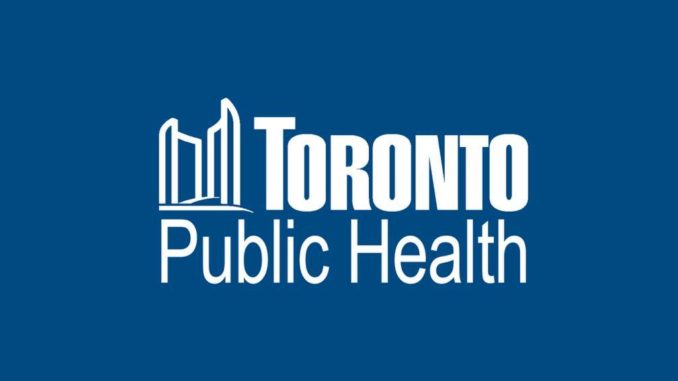
This morning, Toronto Public Health (TPH) added 3,900 new monkeypox vaccination appointments to the TPH booking system: www.toronto.ca/community-peopl
Monkeypox vaccination clinic locations and times:
• Metro Hall, 214 Wellington St. W., Mondays to Thursdays, noon to 6 p.m. and Sundays, 10 a.m. to 4 p.m.
• Cloverdale Mall, 250 the East Mall, Tuesdays to Fridays, noon to 6 p.m. and Saturdays, 10 a.m. to 4 p.m.
• 1940 Eglinton, 1940 Eglinton Ave. E., Tuesdays to Fridays, noon to 6 p.m. and Saturdays, 10 a.m. to 4 p.m.
A health card is not needed to get a vaccine at a City of Toronto-run vaccination clinic.
The full list of monkeypox immunization clinics for people meeting the provincial criteria is available on the City’s monkeypox webpage: www.toronto.ca/community-peopl
TPH continues to follow federal and provincial guidance on the administration of Imvamune vaccines to protect at-risk populations against the monkeypox virus. Based on Ontario Ministry of Health guidelines, only one dose is given at this time. Clinics are for transgender men and women or cis-gender individuals who self-identify as belonging to the gay, bisexual and other men who have sex with men (gbMSM) community and at least one of the following:
• Had a sexually transmitted infection (STI) in the past two months, such as chlamydia, gonorrhea or syphilis
• Had two or more sexual partners in the past 21 days or may be planning to
• Attended a bathhouse, sex club or similar place for sexual contact within the past 21 days or may be planning to, or who work/volunteer in these settings
• Had anonymous/casual sex in the past 21 days or may be planning to, including using online dating or hookup apps
• Engaged in or planning to engage in sex work, and the persons with whom they have sexual contact
Monkeypox spreads from person to person through contact with infected lesions, skin blisters, body fluids or respiratory secretions. It can also be transmitted by contact with materials contaminated with the virus (e.g. clothing, bedding) and through bites or scratches from infected animals.
Anyone can get monkeypox, but during this outbreak, in a number of countries including Canada, those who have been mostly affected are gay, bisexual and men who have sex with men.
Monkeypox symptoms include fever, headache, muscle aches, exhaustion and swollen lymph nodes, followed by the development of a rash or blisters over a person’s body. A rash or blisters will often appear within a few days after symptoms begin, on the body. In some cases, the rash can appear before other symptoms. Most people recover from monkeypox on their own without treatment. Vaccination is being offered to protect against the monkeypox virus and can help reduce serious symptoms. Like most vaccines, the Imvamune vaccine can take up to two weeks for those vaccinated to be fully protected.
TPH is asking residents who have monkeypox symptoms to report them to their health care provider as soon as possible. Close contacts of people suspected of having or confirmed to have a monkeypox infection are advised to self-monitor for symptoms for 21 days after their last exposure. If symptoms develop, they should self-isolate, seek care and get tested. Health care providers are reminded that individuals suspected of monkeypox infection must be reported to TPH. As with many other diseases spread through close contact, people can lower their risk by maintaining physical distance, frequent hand washing and respiratory hygiene, including masking. Common household disinfectants can kill the monkeypox virus.
Public Health Ontario updates monkeypox data for Ontario every Tuesday and Friday. As of August 15, 396 laboratory confirmed cases of monkeypox were reported in Toronto, with five probable cases currently under investigation. More information is available on the Public Health Ontario website: https://www.publichealthontari
TPH continues to follow up with anyone thought to be exposed to monkeypox. TPH also continues to work closely with the Public Health Agency of Canada, Public Health Ontario, and the Ontario Ministry of Health. TPH has communicated with local physicians to provide information on symptoms, laboratory testing and diagnosis, infection control precautions, treatment and reporting requirements for monkeypox.
More information is available on the City’s monkeypox webpage: www.toronto.ca/community-peopl
Residents can also find information about monkeypox on the Public Health Agency of Canada’s website (https://www.canada.ca/en/publ
Additional information is also available on the Gay Men’s Sexual Health Alliance website: https://gmsh.ca/monkeypox/.
SOURCE City of Toronto

Leave a Reply